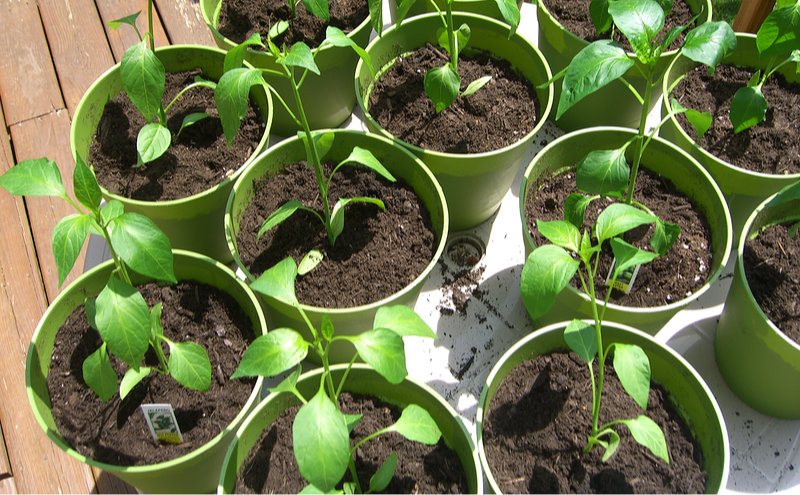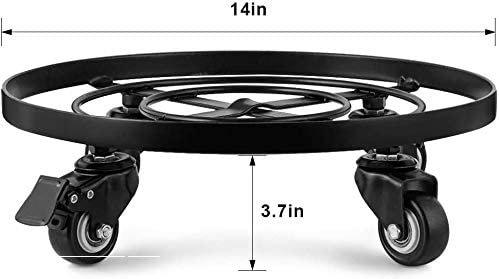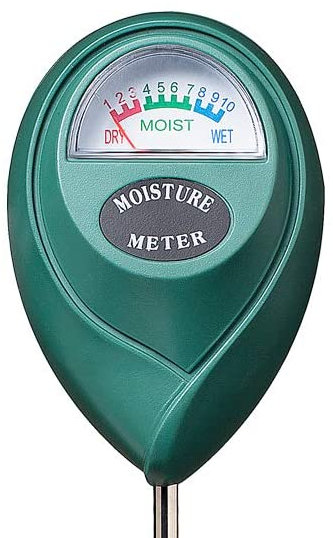Advantages of Vegetable Container Gardening

Here’s a list. Advantages of vegetable container gardening. Just getting started? It’s a great way to do it. Pots and Containers. And best of all, it will work pretty much anywhere you may live.
What can I grow in a container garden? Just about any vegetable or herb!
Popular, easy container crops include salad greens, peppers, eggplant, tomatoes, beans, chard, beets, radish, squash and cucumbers.
Look for “bush” or “dwarf” varieties, especially tomatoes, cucumbers, squash.
The key is to experiment.
List of Advantages for Container Gardening
Functional
Container gardening can be done nearly anywhere. Your Patio. Deck. Balcony. Rooftop (flat roof with access?). Simply on the ground anywhere outside. Indoors too!
Convenience
Especially for the older crowd, or those with disabilities, or even children… container gardening is certainly more accessible than traditional gardening.
Maneuverability
A pot or container is fairly easy to move. Some people use a plant container caddy/dolly on wheels. You could move the container garden to locations where the sun may move throughout the day (for example). Or move it if bad weather is coming.
Best Selling Heavy Duty Indoor-Outdoor
(view on amzn)

Diversity
Vegetable container gardening enables a greater variety of possibilities. Plants may have varying soil needs, among other things. Consequently, pots and containers can be individually optimized depending on what you’re growing.
Weed Relief!
I do some vegetable container gardening every year. There’s rarely a weed issue at all. Tiny one’s here and there, are easy to pull out. “Oh what a relief it is…”
Saves Your Back
No bending over to ground level!
Utilizing Your Space
Vegetables grow different from each other. Some are tall. Some short. There are the bushy ones. Some will cling to anything and grow up and up… Anyway, as a result, you can tailor where you put your garden container depending on these characteristics.
Fewer Pests
A larger vegetable garden will invite pests – insects. Well, all gardens do. However, insects are less likely to come upon containers and pots further apart or up higher than on the ground (e.g. your deck or balcony).
Fewer Disease Problems
Generally, vegetables and plants that are in pots and containers may have less disease compared to in the ground soil.
Easier
It’s just plain easier to weed and water a vegetable container garden. Although a side note… a container garden may require more watering because they dry out quicker being above ground and exposed to the sun.
Indoor Container Garden
Because you’re growing plants in a pot or container, this opens up the possibility of growing some vegetable plants and herbs indoors. South window!
Start Earlier
Rather than having to wait for ground temperatures to sufficiently warm in the spring, you can start your container gardening earlier. Soil warms up quick in the sun above ground.
Apartment and Townhouse Living
No yard? No problem. You likely have a deck or balcony of some sort. There’s your space for a container garden.
Especially Good For Novice or Beginning Gardeners
Everything about a vegetable container garden is easier. The weed problem is minimal. Diseases and pests are quickly noticed and easily remedied. Containers can be moved to protected spots when there is a danger of prolonged foul weather.
Easier on Fertilizer
Container garden plants require less frequent application of fertilizers. It lasts longer because they remain concentrated in the limited amount of soil within the containers.
Sunlight
Different plants may need different amounts of sun. Depending on what you’re growing. Full sun? Partial shade? Etc… A container or pot can be moved to accommodate this.
Best Dirt – Soil For Container Gardening
Select Light and Fluffy growing media for good aeration and root growth.
Why not just use “garden soil” ? Because it is typically fairly compact, which can hold water and nutrients very well, but can drown roots growing in a container.
Add last season’s containers growing media to your regular garden (assuming no signs of disease). Don’t re-use in your containers. Technically it could be re-used for containers, but, nutrients will be depleted and particle size and pore spaces decreased. So, not recommended.
Tip: Next season… Be sure to replace the soil completely if you found any sign of disease in the plants the previous year as it can stay in the soil.
Container Gardening Water Tips
- Quality and yield are greatly reduced by wilting from a lack of water.
- Drought stress will kill feeder roots and slow plants down.
- Small containers dry out more quickly than large containers.
- Use a saucer to catch excess water.
- The limited volume of growing medium available to container vegetable plants makes it critical to keep the root system moist at all times.
- Watering needs will vary depending on container size, ambient temperature, wind, sunlight, and humidity.
- The growing media should always be moist, but not soggy.
- Micro-irrigation with soaker hoses and drip emitters is efficient, convenient, and relatively inexpensive. Consider a combination of drip emitters plus timer for automatic watering.
Best Selling & Well Reviewed Soil Moisture Meter

